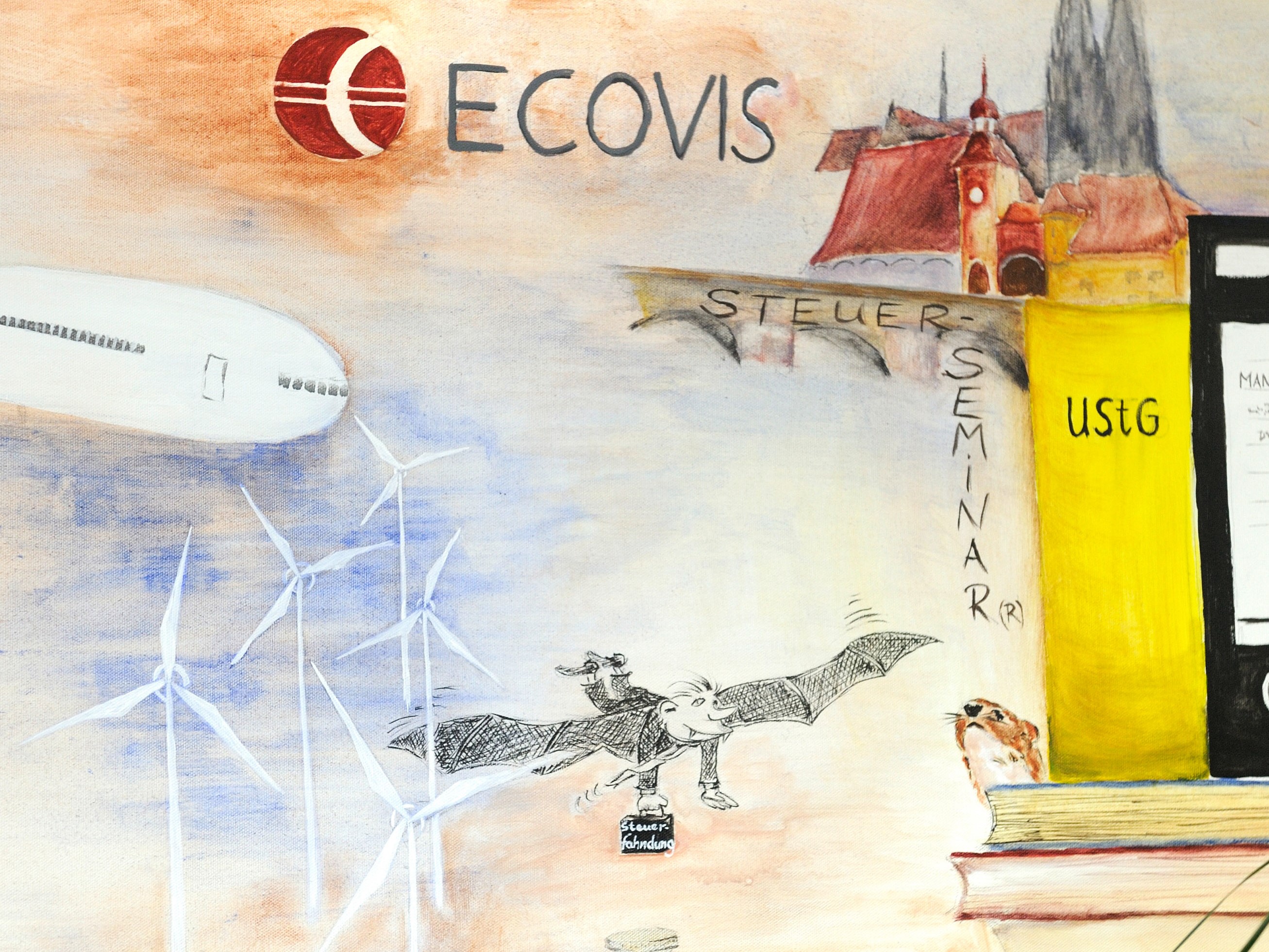Legal aspects of purchasing a share in a housing cooperative in the Czech Republic
1. INTRODUCTION TO PURCHASE OF CZECH COOPERATIVE FLAT
How to acquire a cooperative flat under the Czech law and what are the basic legal aspects of purchasing a cooperative share, which is connected with a right of lease of a cooperative flat in Czech Republic? How to lease a cooperative flat in Czech Republic to a third party, taking into account legal aspects of taxation of income incurred on such a lease for a tax non-resident of the Czech Republic?
2. BASIC DEFINITIONS
2.1 Housing cooperative in the Czech Republic
Cooperative in Czech law is generally defined as a legal person, which in the course of its activities ensures mainly the needs of its members, but other business activities are not excluded.
On the other hand, a housing cooperative in the Czech Republic is a specific type of cooperative and can only be established for the purpose of meeting the housing needs of its members, while other business activities are severely limited. A housing cooperative may, under certain conditions, manage houses with flats and non-residential premises owned by other persons, and further may, under conditions laid down by law, engage in other activities as long as this does not jeopoardize the housing needs of its members and this activity is merely of complementary nature. A housing cooperative must always be designated as “housing cooperative“.
The basic function of a housing cooperative is therefore to ensure the housing needs of its members, while it is not possible to change the object of its activity and become something else than a housing cooperative, until at least one of its members is a lessee of a cooperative flat, or atleast one member has the right to enter into a lease contract for a cooperative flat after meeting the requirements laid down in the Articles of Association.
Articles of Association of a housing cooperative in the Czech Republic must always contain conditions, under which a member of the housing cooperative becomes entitled to enter into a contract for the lease of a cooperative flat, and further, a regulation of rights and obligations of a member of the housing cooperative connected with the right to enter into a contract for the lease of a cooperative flat and with rights and obligations of a member a of housing cooperative connected with the use of cooperative flat. To change the Articles of Association of a housing cooperative, it is necessary to obtain an approval from all the members of the housing cooperative who are lessees of a cooperative flat, or who, according to the current and effective Articles of Association, have the right to enter into a contract for the lease of a cooperative flat.
A Czech housing cooperative may not transfer the ownership right to cooperative flast without prior consent of all the members of the housing cooperative, who are lessees of a cooperative flat, and all the members, who are not lessees, but in accordance with the current and effective Articles of Association have the right to enter into a contract for the lease of a cooperative flat. Consent is not required as regards to the transfer of ownership rights to cooperative flats to members of the housing cooperative who are lessees of these cooperative flats.
Furthermore, a housing cooperative may not pledge or otherwise encumber its cooperative flats without obtaining an approval to such an encumberment from at least two-thirds of the members, who are lessees of these cooperative flats.
2.2 Cooperative flat
Cooperative flat is a flat (or, where appropriate, non-residential premise), which is owned or co-owned by a housing cooperative, which the housing cooperative leased to a member of the housing cooperative, who by himself or through his legal predecessor, participated in its acquisition by a membership contribution. It is therefore not excluded, that the predecessor of the current member of the housing cooperative directly participated in the acquisition of the flat, provided that the cooperative share was duly tranferred to a third person, who became a member of the cooperative, and therefore became a lessee of the cooperative flat after he had acquired the cooperative flat.
There is always a lease agreement between a housing cooperative and a member of a housing cooperative concerning the particular cooperative flat. It follows from the above that a member of a housing cooperative does not become the owner of the flat itself, but is merely a lessee of a flat, which is in the ownership of the housing cooperative.
For each cooperative flat, the cooperative flat lease agreement stipulates the rent connected with the use of this cooperative flat, while the amount of the paid rent must correspond only to the purposefully incurred costs of the housing cooperative that arises while maintaining this cooperative flat, including the costs of repairs, modernization and reconstruction of the house in which it is located, and contributions to the creation of a long-term financial resource for the repair and investment of the cooperative flat.
2.3 Cooperative share connected with the right to lease a cooperative flat in Czech Republic
A member of a housing cooperative in the Czech Republic is the owner of the cooperative share, who fulfills or assumes the contribution obligation determined by the articles of the housing cooperative. A legal person or a natural person may become a member of a cooperative, while the membership of a legal person may be restricted (conditional on other conditions) or excluded entirely by a particular housing cooperative in its Articles of Association.
Ownership of a cooperative share in a housing cooperative or a membership in a housing cooperative implies a right for the member, in particular the right to enter into a contract for the lease of a cooperative flat for an indefinite period between the housing cooperative and this housing cooperative member, the right to determine the rent and the obligation to pay the costs of repair or reconstruction of the house that he occupies. Articles of Association of a housing cooperative may determine other conditions, under which the above-mentioned right to enter into a contract for the lease of a cooperative flat.
Cooperative share is a movable thing that is freely transferable if the transferee meets the conditions for acquiring a cooperative share set out in the Articles of Association of the housing cooperative. In the event that the transferee does not meet these conditions, the transferability of the cooperative share cannot be limited or excluded in any way.
Joint ownership of a cooperative share is, according to applicable Czech law, possible and co-owners then become joint members in a housing cooperative. Articles of Association of a particular cooperative may then joint ownership completely, and such a share may then be acquired only by one specifically designated person into its exclusive ownership. Spouses whose shares in a housing cooperative belong to the community property of the spouses, become joint members of a housing cooperative according to legislation, irrespective of whether or not the Articles of Association, and with that a joint membership of several people, exclude or not.
Articles of Association of a cooperative are publicly available in the Collection of Documents of the Commercial Register, and it is only advisable to go through the current Articles of Association and make sure that they do not contain any surprising provisions and whether and by what they condition transfer of a cooperative share.
3. TRANSFER OF A COOPERATIVE SHARE IN A HOUSING COOPERATIVE IN CZECH REPUBLIC
3.1 Transferability of a share in a housing cooperative
In principle, the transfer of a share in a housing cooperative in Czech Republic cannot be restricted or excluded of the tranferee meets condition of the Articles of Association for admission as a member of a housing cooperative. However, the Articles of Association may limit or exclude transfer of a share in a cooperative; in practice, this concerns in particular the limiation of the tranfer of the share to legal persons, to foreigners without permanent residence in the Czech Republic, or limitation of the possibility of transfer of the share to a joint ownership of two and more persons.
According to the applicable legislation, together with the transfer of a share in a housing cooperative, the lease of a cooperative flat is transferred, including all rights and obligations connected therewith and all debts of the transferor to the housing cooperative and all debts of the housing cooperative to the transferor that are associated with use of the cooperative flat by the transferor, from the moment the transferee becomes a member of the housing cooperative (see point 3.2 of this Memorandum). For this reason we recommend to request a confirmation from the transferor before entering into a Cooperative Share Purchase Agreement stating that all his obligations to the housing cooperative have been fulfilled and that he duly paid the rent and other payments which he was required to pay to the housing cooperative according to the Articles of Association.
3.2 Share Purchase Agreement in a housing cooperative
Share transfer in a housing cooperative is realized on the basis of a Share Purchase Agreement, which is entered into by and between a transferor (original member) and a transferee (new member), and becomes effective upon the delivery to the housing cooperative. The transferee becomes a member of the cooperative, with all its associated rights and obligations, upon the delivery of a valid Share Purchase Agreement to the housing cooperative, usually the executive body – Board of Directors. The Board of Directors, or any other executive body, appointed in the cooperative, should register the transferee as a new member of the housing cooperative.
The transfer of a cooperative share may be subject to a transfer fee, which the housing cooperative may set in the Articles of Association in principle in any amount, usually then in an amount of several thousand Czech crowns (CZK). On the other hand, if the transferee meets conditions to become a member according to effective Articles of Association, the housing cooperative has not right to refuse or dismiss the transfer of shares or to request a new membership contribution from the transferee (provided that the transferor fully paid his membership contribution).
3.3 Documents and confirmation that is appropriate to request in connection with the transfer of a cooperative share
Since with the Share Purchase Agreement coming into effect, all debts of the transferor to the housing cooperative and all debts of the housing cooperative to the transferor that are associated with the use of the cooperative flat transfer to the transferee, before entering into the Share Purchase Agreemend in a housing cooperative we recommend to request in particular the following documents and confirmations from the transferor, or the housing cooperative:
- (a) confirmation that the transferor is the current and real owner of the cooperative share, to which the right to lease a cooperative flat belongs (confirmation that the transferor is the actual and effective owner of the cooperative share to which the right to lease a cooperative flat belongs) in contrast to the transfer of a flat in exclusive ownership of the transferor, it is not sufficient to present the transferor’s acquisition title, because acquisition title of a housing cooperative several years old does not prove that the transferor is still the owner of the cooperative share, since he could have been expelled from the cooperative in the meantime, he could have sold his share, etc.);
- (b) confirmation of the transferor's indebtedness in relation to his cooperative share,
- (c) confirmation that the entire membership contribution has been paid in relation to the transferred share (annuity) or, as the case may be, how much of the membership contribution has not been paid at the date of conclusion of the Share Purchase Agreement;
- (d) confirmation that the transferor is not being prosecuted in regards to exclusion from the housing cooperative;
- (e) the registration or calculation sheet, which determines the exact amount of monthly costs paid for the use of a particular cooperative flat
It is also advisable to go through the financial statements of the cooperative itself and, if necessary, request information on the current liabilities of the housing cooperative towards third parties (information on the indebtedness of the housing cooperative). Monthly repayments of all loans of a housing cooperative are budgeted among the individual members of the cooperative within the rent, which each member pays for the use of a cooperative flat
Finally, it is advisable to obtain information from the housing cooperative about any planned investments and the overall condition of the house of flats owned by the cooperative, because even if the cooperative does not currently have any debts, the membership meeting may have approved a loan for reconstruction or conversion, which can consequently increase monthly rent of each member by tens of thousands of crowns (CZK).
4. PRACTICAL DIFFERENCES BETWEEN THE OWNERSHIP OF A FLAT AND OWNERSHIP OF A HOUSING COOPERATIVE SHARE ASSOCIATED WITH THE RIGHT TO ENTER INTO A CONTRACT FOR A LEASE OF A COOPERATIVE FLAT IN THE CZECH REPUBLIC
The elemental difference is that in the case of exclusive ownership of a flat, the owner owns a real immovable thing, which he can freely dispose of at his discretion (eg. to lease to a third party), may encumber this immovable thing with contractual rights (eg. easements), and pre-emption rights will apply. On the other hand, in the case of ownership of a share in a housing cooperative, the subject ownership right is an immovable intangible thing, the ownership of which entails certain rights and obligations, but the owner is only a lessee of a cooperative flat, not its owner, and is limited by the Articles of Association. The disposition rights to a share in a housing cooperative are regulated by Articles of Association of the cooperative, which may, for example, limit the group of persons who may become a member of a cooperate, set conditions for deprivation of membership and cancellation of shareholding, limit or charge the ability to sublease a flat or stipulate that some dispositions with the share are subject to consent of the housing cooperative, which is the real owner of the flat.
In the case of ownership of the flat, this information is recorded in a public register – the Cadastral Register, and therefore everyone can easily find out what the person owns. Typically, an example may be given where distraint is being against the owner of the flat and the bailiff immediately discovers that the person owns real estate. In contrast, ownership of a share in a housing cooperative is registered only in private lists of the housing cooperative itself, while in the public Commercial Register, housing cooperatives are registered as legal persons and no information about individual members of the cooperative can be found there. In connection with the above-mentioned case, it is more difficult for the bailiff to find data about the ownership of the cooperative share.
The owner of a flat in private ownership is obliged to pay property tax. The owner of a share in a housing cooperative does not pay this tax, for a share is not an immovable thing. Similarly, in the case of the transfer of ownership to a flat in exclusive ownership, this transfer is subject to the tax on the acquisition of immovable property paid by the buyer under the applicable legislation (unless otherwise agreed in the contract). By contrast, the transfer of share in a housing cooperative is not subject to immovable property tax.
From the point of view of possible financing of the purchase, the flat in private ownership can be used as pledge for obtaining mortgage loan. A share in a housing cooperative may also be pledged under certain conditions, but banks generally do not provide mortgage loan secured by a pledge to a cooperative share.
5. SUBLEASE TO A THIRD PERSON
5.1 Approval by the designated body of the housing cooperative
The right of a member to negotiate a lease agreement is firmly connected with membership in a housing cooperative, while the owner of the flat remains the housing cooperative. By virtue of the membership in a housing cooperative, a member of the housing cooperative has a right to use and live in a cooperative flat as a lessee, while the ability to assign it to another (third party/person) for use is possible only through sublease. In the case of a cooperative flat, the sublease of a cooperative flat requires the consent of the authorized body of the cooperative, which is determined by the Articles of Association (typically the board of directors of the housing cooperative). The Board of Directors may issue such approval for a specific person (a specific sublessee), or for a specific period (here it cannot be limited by the duration of the lease, since the lease agreement between the cooperative member and the cooperative is entered into for an indefinite period). Nor can it be ruled out that the Board of Directors will deny consent to the sublease of a cooperative flat to a third person.
The consent of the Board of Directors to the sublease is not necessary only if the cooperative member lived in the cooperative flat himself and the sublessee leased only a part of the cooperative flat (eg. one room), for bodies of the cooperative cannot interfere with members´ decisions to live with someone.
5.2 Taxation of income from a lease of a cooperative flat in the Czech Republic
The income from the sublease of a cooperative flat located in the Czech Republic is subject to personal income tax pursuant to Act. No. 586/1992 Coll. Czech Income Tax Act, even if the lessor is not tax resident in the Czech Republic. However, as a tax non-resident in the Czech Republic, he would only tax income from sources located in the Czech Republic, ie. from the sublease of a cooperative flat. He will thus be subject to the obligation to file a tax declaration in the Czech Republic pursuant to Section 38 (g) of the Czech Income Tax Act, even if, after deducting tax deductible expenses and after deducting the basic tax deduction, the final tax liability becomes zero.
In calculating the tax base, it is possible to deduct from the total annual income provable expenses for achieving, maintaining and securing of taxable lease income (eg. energies, repairs and maintenance, property insurance, rent etc.), typically, these are the items listed in the lease agreement entered into with the housing cooperative. However, it is not possible to claim depreciation of real estate as tax expenditures, because according to Section 28 of the Income Tax Act, only the taxpayer who owns the subject of taxation can apply it. In this case, the property can be depreciated exclusively by the housing cooperative. With regard to the contributions to the repair fund referred to above, only provable repair and maintenance expenses may be included in direct tax expense, provided that this obligation is specified in the lease agreement or consent from the cooperative has been obtained. In other words, only those payments to the repair fund that are actually used for the repair and maintenance of the leased property can be counted as direct tax deductible expenses.
A tax resident of a foreign country is entitled to set off the tax paid in the Czech Republic against its tax liability in the country in which he is a tax resident.
Please do not hesitate to contact us for more information
JUDr. Mojmír Ježek, Ph.D.
ECOVIS ježek, advokátní kancelář s.r.o.
Betlémské nám. 6
110 00 Prague 1
e-mail: mojmir.jezek@ecovislegal.cz
www.ecovislegal.cz/
About ECOVIS ježek, law firm s.r.o .:
Czech law firm ECOVIS ježek focuses mainly on company law, real estate law, dispute management, finance and banking law , and provides professional advice in all areas, making it an alternative for clients of international offices. The international dimension of the services provided is ensured through past experience and through cooperation with leading law firms in most European countries, in the United States and other jurisdictions within the ECOVIS network operating in 75 countries around the world. Members of ECOVIS ježek team have long-time experience from leading international lawyers and tax companies in providing legal advice to multinational corporations, large Czech companies, but also to medium-sized companies and individual clients. More information at www.ecovislegal.cz.
All information contained on this website is a kind of legal advertisement. Do not consider anything on this website as legal advice and nothing on this website constitutes an advocate-client relationship. Before acting on anything about what you read on this website, arrange a legal consultation with us. Former results are not a guarantee of future results, and former results do not indicate or predict future results. Each case is different and must be judged according to its own circumstances.














